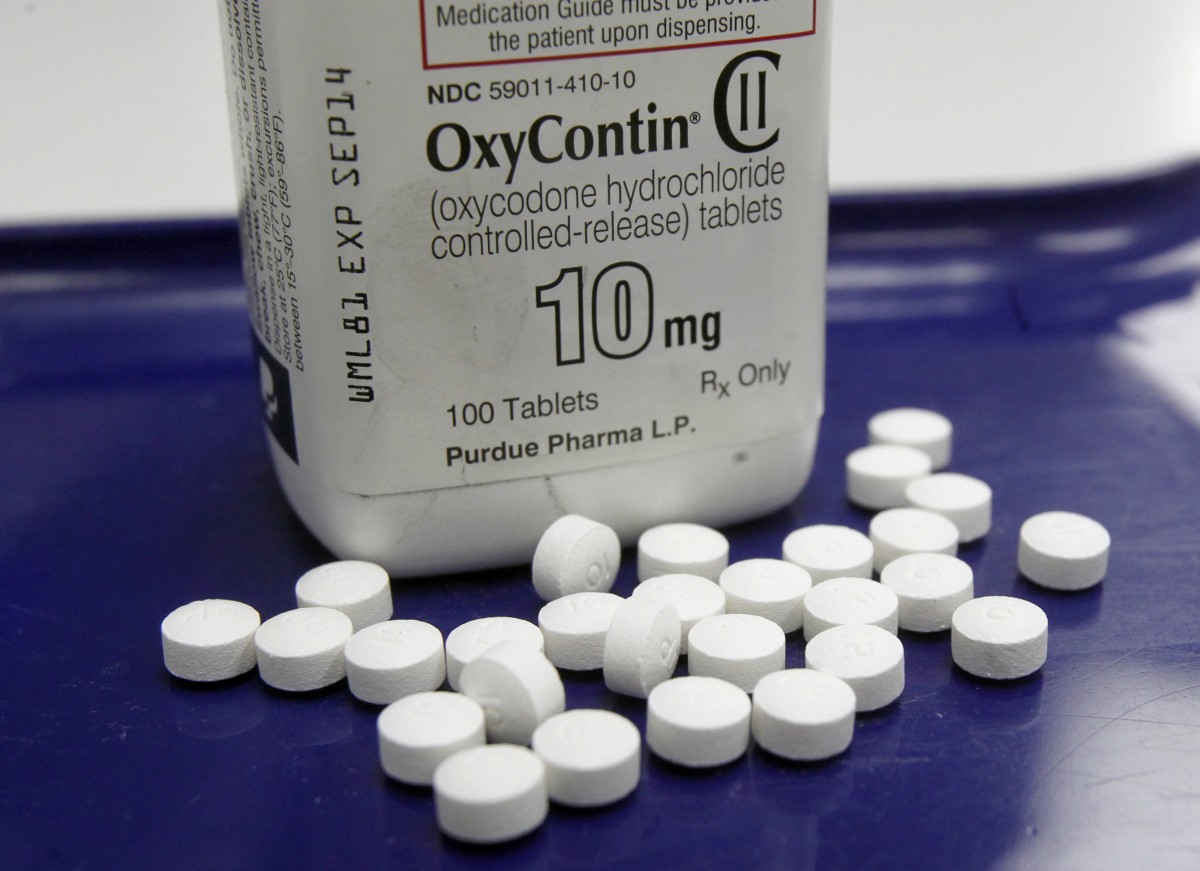Two West Virginia University law professors who happen to be married and who donated countless hours to secure the release of data on the distribution of opioids in West Virginia and the rest of the country, say the $8.3 billion settlement the Justice Department reached with the manufacturer simply isn’t enough.
“The $8.3 billion is substantial (with now bankrupt OxyContin manufacturer Purdue Pharma) but it does not represent the amount of funds communities across the country will receive to treat the opioid addiction,” said Patrick McGinley, who along with his wife, Suzanne Weise, represented the Charleston Gazette-Mail and its parent company, HD Media, in a year-long court battle to force the U.S. Drug Enforcement Administration to release the information. (The Washington Post also sought the information and published the DEA database last year that tracked the sale of every single pain pill sold in the U.S. from 2006-12.)
The state, as a whole, received 853.48 million pills during the seven years, including 25.96 million prescription pain pills supplied in Monongalia County;
5.9 million pills in Preston County and 12.68 million pills in Marion County, the database showed.
Overall, West Virginia received 853.48 million pills during the same timeframe. The database showed Strosnider Pharmacy in Kermit, Mingo County, received the largest number of pills at 13.16 million. The state had the highest concentration of pills per individual with 67. Kentucky was second with 63 followed by South Carolina and Tennessee with 58 each, the Washington Post said.
“Obtaining this information is an extraordinary victory for people across the country whose communities were inundated by huge quantities of addictive prescription opioids,” Weise said. “Poor, rich and middle class, old and young were all targets of opioid manufacturers, distributors and retail pharmacies whose profits soared while hundreds of thousands died from overdoses, and the DEA failed to use the data to suppress the epidemic.”
Getting involved
McGinley and Weise, who previously worked with newspapers on issues affecting the state, became involved in the case years earlier when contacted by Eric Eyre of the then Charleston Gazette. Eyre was looking into the issue of the amount of pain pills coming into the state and later won the Pulitzer Prize for his efforts.
In 2016, the pair successfully argued in Boone County that sealed records from large drug companies were outdated and no longer proprietary and the public had the right to know, according to a story earlier this year in WVU Magazine.
“When the secret government records were disclosed, Americans learned one billion opioid pills had flooded West Virginia from 2006- 2020; one hundred billion prescription pills were spread across the nation,” McGinley said in an email. “Hundreds of thousands of overdose deaths and millions of Americans were addicted as a direct consequence of the tidal wave of pills that swamped the country.”
As part of the settlement, agreed to last month, Purdue Pharma agreed to plead guilty to three criminal felonies. The Sackler family, owners of Purdue Pharma, reached a $225 million civil settlement with the Justice Department.
“In announcing the settlement, a Justice Department spokesman said company efforts ‘directly led to uses of the addictive tablets that were unsafe, ineffective and medically unnecessary, and that often led to abuse and diversion,’ ” McGinley said.
Not enough
The settlement reached with the government does not guarantee any monies will go to the communities most impacted by the pain pill crisis, the couple said.
An analysis of the DEA data by the Washington Post found 76 billion pills were distributed to communities throughout the country during those seven years, and 75% of the pills came from six companies and three companies manufactured 88% of the pills.
Twenty-five state attorneys general objected to the settlement because they thought it was too lenient. More than 2,800 court cases were filed by states, counties and towns across the country with the goal of forcing Purdue Pharma and other opioid manufacturers, distributors and retail pharmacies to pay for the future costs of treatment programs.
Jury trials in two of those cases have been scheduled for December and next fall, McGinley said.
“We are disappointed that the Justice Department’s investigation and settlement does not guarantee money will flow to opioid-ravaged communities needing funding to run addiction treatment programs,” McGinley said. “Moreover, the Justice Department settlement does nothing to hold Purdue managers and the Sackler family owners personally accountable.”
Takeaways
The settlement proposes Purdue Pharma’s assets be moved to a new public trust corporation. Plus, details of how the company will operate have not been disclosed, the couple said.
“According to the Justice Department, the new company will continue to make and sell at a discount Purdue’s highly additive pain killer OxyContin as well as overdose rescue drugs and treatment medications,” the couple said in an email.
“While that proposal sounds good in theory, having the government operate an entity that sells prescription opioids to fund future opioid treatments seems problematic,” they said. “We agree with several state Attorneys General (who) assert that the federal government should stick to its law enforcement role rather that create a new ‘public-benefit’ company that sells the same addictive drugs that contributed to the creation of the nationwide opioid health crisis.”
Tweet @41Suzanne




